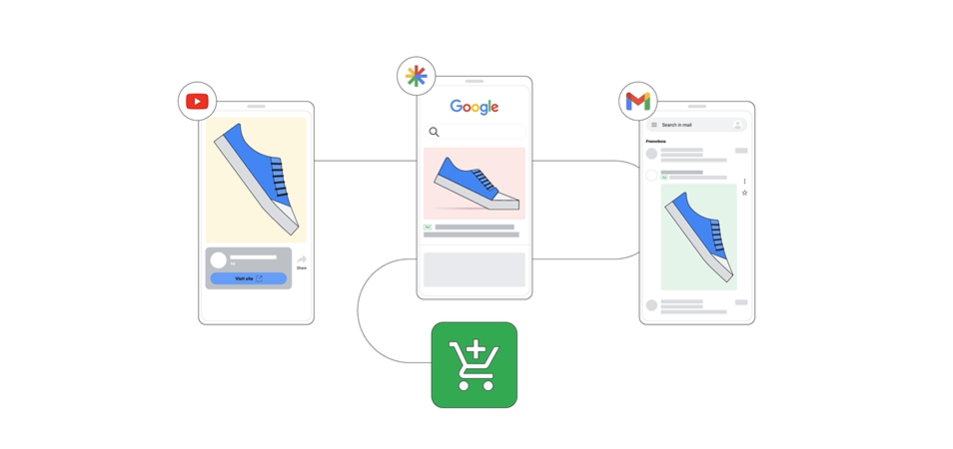Google is making a major shift in its video advertising landscape by merging its Video Action Campaigns (VAC) into the more versatile and AI-powered Demand Gen campaigns starting mid next year.
The change comes as Google aims to enhance the advertising experience by offering a multi-format, automated approach that promises improved performance and broader reach.
Why Google Is Sunsetting Video Action Campaigns
Video Action Campaigns, which primarily focus on YouTube-style video ads with direct calls to action, have been a popular choice for marketers looking to drive conversions.
These ads have typically run on YouTube and Google’s video partner sites, enabling brands to engage audiences with dynamic visual content that encourages immediate actions, such as visiting websites or browsing shopping catalogues. However, VACs have faced criticism from advertisers due to concerns about ad placements on low-quality sites and a lack of creative flexibility.
Demand Gen campaigns offer a more comprehensive solution, blending video, image, and text ads into a single campaign that runs across Google’s ecosystem, including YouTube, Discover, and Gmail. By expanding the range of ad formats and placements, Google aims to provide advertisers with more tools to capture emerging demand and improve their ad performance.
What Are Demand Gen Campaigns?
Launched in 2023, Demand Gen campaigns represent a next-generation approach to advertising, leveraging AI-driven automation to create multi-format ads that cater to a variety of placements.
The key differentiator lies in their ability to combine different creative elements—video, image, and text—within a single campaign, allowing brands to tell more cohesive stories that resonate across various platforms. With access to up to 3 billion monthly users on YouTube, Discover, and Gmail, Demand Gen provides advertisers with a broad and multifaceted reach.
Google’s data shows that combining video and image assets in Demand Gen can increase conversions by 20% at the same cost per action (CPA) compared to using video alone.
Benefits of the Transition to Demand Gen
The shift to Demand Gen offers several key benefits for advertisers looking to optimise their campaigns:
- Expanded Reach and Multi-Format Flexibility: Demand Gen allows advertisers to engage with audiences across YouTube, Discover, and Gmail, reaching users in multiple contexts. The ability to use both video and image ads in a single campaign provides creative flexibility, enabling brands to experiment with different formats to find what resonates best.
- Improved Performance and Cost Efficiency: Google’s internal data highlights the performance gains advertisers can expect from using Demand Gen. DoorDash, for example, reported a 15x higher conversion rate and a 50% more efficient CPA compared to VAC. The integration of multi-format ads helps capture attention in diverse environments, from video feeds to email inboxes, driving stronger results at a lower cost.
- Automation and AI-Powered Optimisation: Demand Gen is built on Google’s AI-driven ad technology, automating decisions on ad placements, audience targeting, and bidding strategies. Marketers can also utilise optional generative AI tools to customise ads in various aspect ratios, ensuring the best presentation based on where the ad appears.
Control and performance underpin the change
Google’s transition from VAC to Demand Gen is more than just a technical upgrade; it’s a strategic move to align with the changing demands of the advertising landscape.
Consumers now expect more engaging and personalised ad experiences, and Demand Gen’s multi-format approach meets these expectations head-on. By consolidating ad formats and automating processes, Google aims to provide a more streamlined and effective advertising platform that keeps pace with competitors like Meta and TikTok.
Concerns over ad quality and transparency have also influenced Google’s decision. VACs faced scrutiny for ad placements on low-quality partner sites, prompting Google to improve its brand safety measures and reporting capabilities.
With Demand Gen, advertisers have better control over where their ads appear and can opt out of running campaigns on third-party sites, ensuring greater alignment with brand standards.
What’s Next for Advertisers
As Google prepares for the full transition in Q2 2025, advertisers are encouraged to start exploring Demand Gen campaigns now. Early adoption provides an opportunity to familiarise themselves with the new features and optimise their strategies ahead of the competition.
Google will introduce a migration tool for manual upgrades in early 2025, followed by automatic upgrades of all remaining VACs by Q2 2025.
Marketers should take advantage of Demand Gen’s expanded capabilities, testing the combination of video, image, and text assets to drive stronger results. Embracing these new tools and features can help brands achieve higher performance and maximise their return on investment in the evolving digital advertising landscape.




RECOMMENDED FOR YOU
Google Rebuilds Checkout For AI Shopping
Agentic shopping has moved from theory to reality, and…
Agentic shopping has moved from theory to reality, and…
LinkedIn Reveals Jobs On The Rise 2026
LinkedIn has released its latest Jobs on the Rise…
LinkedIn has released its latest Jobs on the Rise…
Google AI To Power Apple’s Siri
Apple has officially teamed up with Google in a…
Apple has officially teamed up with Google in a…